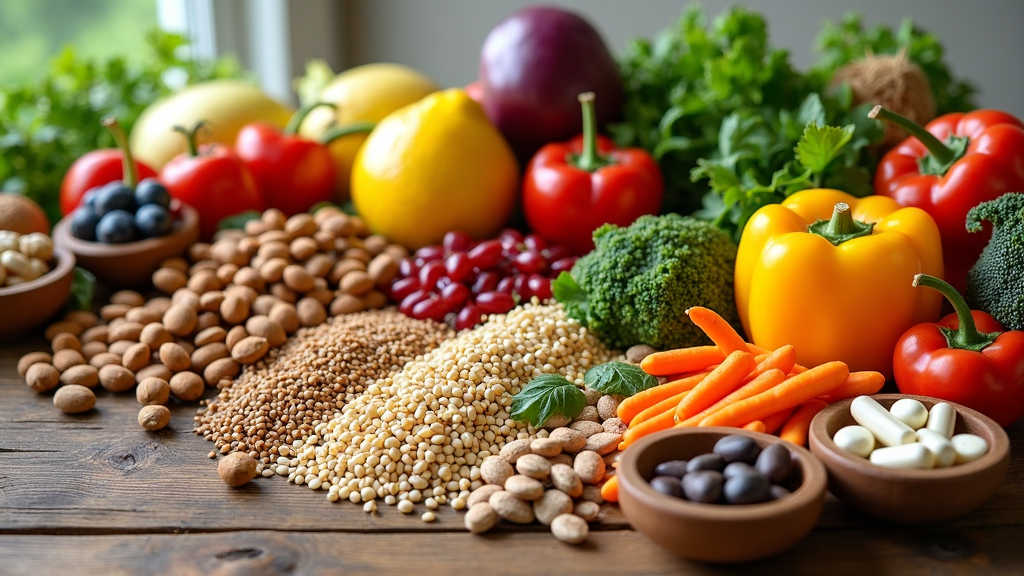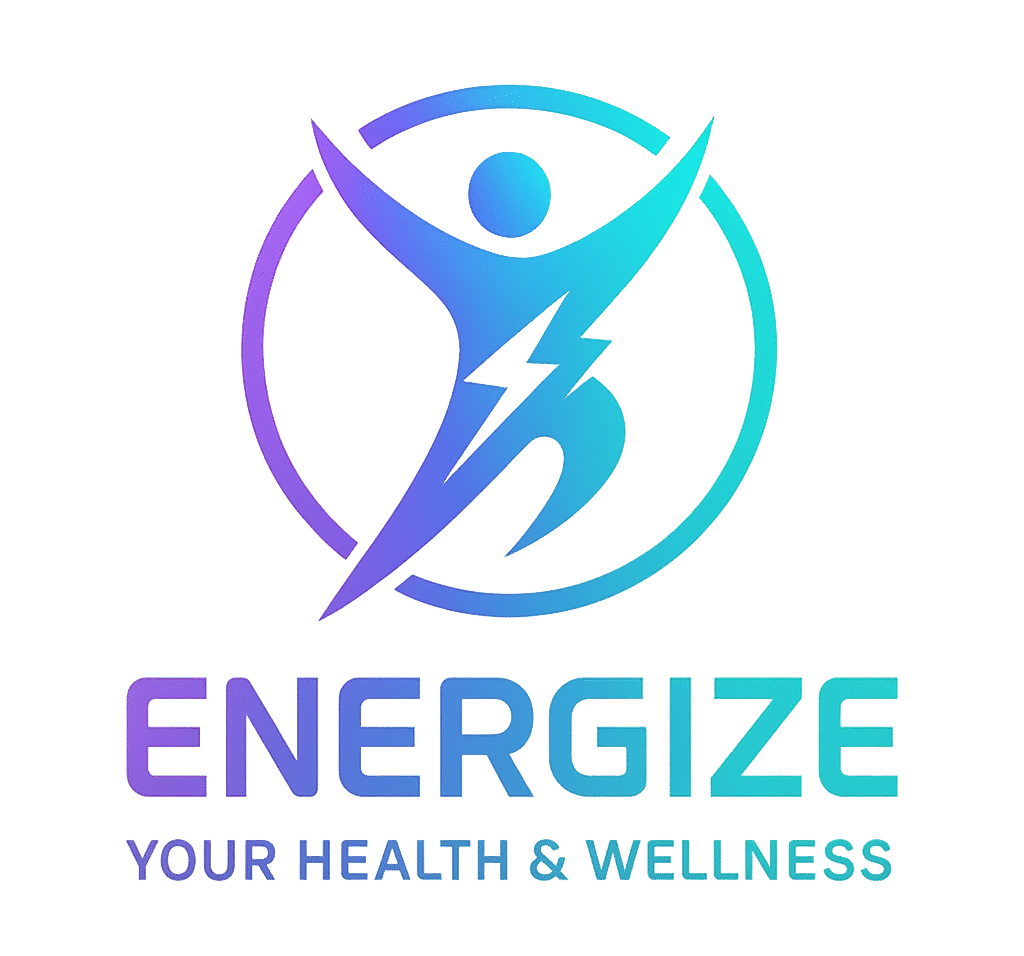Getting the basics of vitamins and minerals sorted isn’t just about covering daily requirements. It’s about giving your body the support it deserves. With so many nutrients and so much health advice out there, making sense of what your body really needs can feel intimidating. I’ve put together this practical guide to the top 10 essential vitamins and minerals for optimal health, so you can make better choices without feeling overwhelmed.

Why Vitamins and Minerals Matter for Health
Vitamins and minerals are those little powerhouses your body uses for everything from energy production to keeping your immune system strong. While your body only needs small amounts, those amounts still matter a lot. Missing out on key nutrients can add up to crummy energy levels, poor focus, and a higher risk of getting sick. Making sure you’re getting the big players in this list can help you feel your best day to day.
Eating a well-balanced diet full of real, whole foods is the easiest way to nail your daily nutrition. But let’s be honest, busy schedules and picky tastes sometimes make that tough. Understanding the main nutrients helps you spot where you’re crushing it or where you might want to focus a little extra.
The 10 Essential Vitamins and Minerals Your Body Loves Most
Your body relies on dozens of different nutrients, but some are bigger players when it comes to keeping your energy up, your bones strong, and your immune system ready for whatever’s going around. Here are the top 10 I always keep an eye on for myself and recommend to others:
- Vitamin D
- Vitamin C
- Vitamin B12
- Folate (B9)
- Vitamin A
- Calcium
- Iron
- Magnesium
- Potassium
- Zinc
Each of these serves a pretty specific role. For example, Vitamin D is super important for bones, while iron powers your cells to deliver oxygen. Missing out on just one can throw off how you feel, even if everything else is in check.
Quick Breakdown: What Each Nutrient Does
Before grabbing any supplements or revamping your meals, here’s a shorthand rundown to help you know what each nutrient brings to the table:
- Vitamin D: Helps absorb calcium, supports bone health, and cheers on your immune system. Found in sunlight, fatty fish, egg yolks, and fortified dairy.
- Vitamin C: Keeps your immune system in shape, helps your body use iron, and acts as an antioxidant. Sources include citrus, strawberries, peppers, and broccoli.
- Vitamin B12: Backs healthy nerves and red blood cell production. It’s mostly in animal products like meat, eggs, and dairy.
- Folate (B9): Good for DNA production and especially important for expecting moms. Leafy greens, beans, lentils, and fortified grains are great sources.
- Vitamin A: Essential for vision, skin, and your immune system. Eat your carrots, sweet potatoes, and dark leafy greens for a boost.
- Calcium: The main mineral for bones and teeth, and it keeps muscles moving. Think dairy, leafy greens, and calcium fortified plant milks.
- Iron: Moves oxygen around your body so you don’t feel wiped out. Find it in beef, lentils, and spinach.
- Magnesium: Powers over 300 enzyme reactions, helping with muscles, nerves, and energy. Nuts, seeds, and whole grains are where it’s at.
- Potassium: Balances fluids and helps with nerves and muscle contraction (including your heart). Bananas, potatoes, and beans are all packed with it.
- Zinc: Keeps your immune system ready, helps wounds heal, and makes sure your sense of taste and smell are on point. Oysters, beef, pumpkin seeds, and chickpeas are all solid options.
It’s worth noting that a nutrient-rich diet not only keeps you feeling energetic but also supports long-term well-being. Including these vitamins and minerals regularly helps your organs, hormones, and even your brain function smoothly.
Tips for Meeting Your Vitamin and Mineral Goals
It’s pretty common to miss out on a few nutrients, even with good habits. Here are some everyday strategies I’ve found handy:
- Eat a variety of colors: Different colored fruits and vegetables mean a wider spread of nutrients.
- Don’t skip on protein: Lean meat, fish, eggs, or plant based options give you iron, zinc, and B12. For vegetarians, fortified foods and B12 supplements may help.
- Swap out refined grains: Try whole grains like oats, quinoa, and brown rice to up your magnesium, iron, and B vitamins.
- Include dairy or alternatives: Milk, cheese, yogurt (or fortified plant milks) provide calcium and often added Vitamin D.
- Keep tabs on portions: It’s easy to overlook how much or how little you’re eating of certain foods, especially if you’re busy.
These aren’t about overhauling your meals overnight, but more about making swaps that can really add up over time. Even small changes like adding spinach to a smoothie or an extra serving of beans to your dinner can make a difference. Prepping your meals ahead and keeping healthy snacks at arm’s reach are quick ways to keep your nutrition on track, too.
Common Roadblocks to Watch Out For
Even with smart eating, a few hurdles can come up. Here are the ones I tend to see most often:
- Limited sun exposure: Not getting much sun can mean low Vitamin D. Foods and supplements can help fill the gap, especially during winter.
- Restricted diets: Vegan, vegetarian, or very picky eating can make some nutrients (like B12, iron, calcium, and zinc) tougher to get from food alone.
- Digestive issues: Anything that messes with nutrient absorption (like celiac disease or IBS) may call for help from a doctor or dietitian.
- Aging: Absorption of some vitamins (like B12 and D) gets harder as you get older, which may mean you need a little extra from supplements or food choices.
Checking in with a healthcare provider or a registered dietitian can help sort out what you might be missing and how to address it. Personalized advice goes a long way if you have health conditions or tricky diets. Remember, awareness is half the battle when working toward a healthier diet.
Vitamin D and Sunlight
I always try to catch some sun every day, but sometimes that’s not possible, especially in northern climates or during winter. That’s when I lean more on fortified milk or a simple D3 supplement. Blood tests can also be helpful if you’re feeling low on energy or suspect a deficiency.
Iron and Plant Based Diets
If you eat mostly plants, iron needs more attention. Plant based iron (called nonheme iron) isn’t absorbed as easily as the kind from meat. Eating vitamin Crich foods (like a splash of lemon on greens) with ironrich meals helps your body absorb more. If you’re eating a plantbased diet, track down foods like lentils, tofu, and fortified cereals, and match them up with peppers or tomatoes to get the most out of your meals.
Paying Attention to Calcium and Magnesium
Whether you’re dairyfree or just not big on milk, it’s easy to slide on these. I like using almond or soymilk that’s calcium fortified and topping oats or salads with almonds and pumpkin seeds for magnesium. Vegetables like broccoli and kale are also decent sources of both nutrients, so mix those in when you can.
Frequently Asked Questions About Vitamins and Minerals
Here are some questions people usually ask when they want to step up their nutrition game:
Q: Can you get all these nutrients from food alone?
I always aim for foods first because your body is great at using nutrients from real meals. Sometimes supplements are helpful, like with Vitamin D or B12 if you’re vegan. But food should be your main source whenever possible.
Q: Is it possible to get too much of a good thing?
Yes, especially with supplements. Mega dosing can cause problems (like too much iron or Vitamin A). Always keep things balanced and check labels to avoid accidentally piling on more than you need. For instance, high amounts of fat-soluble vitamins build up easier in the body.
Q: What’s the best way to know if I’m low on any nutrients?
Paying attention to how you feel is helpful, but blood tests provide real answers if you’re worried. Symptoms of a deficiency might include tiredness, frequent illness, or trouble concentrating. If you notice persistent symptoms, check in with a healthcare professional for advice and testing.
How Vitamins and Minerals Work Together
No vitamin or mineral works totally alone. For example, Vitamin D helps you absorb calcium, while Vitamin C makes plant based iron easier to absorb. Meals that include several nutrient rich foods give your body the best odds of using everything efficiently. Even how you cook your food can matter; lightly steaming vegetables, for example, helps preserve certain nutrients.
This is why I mix and match whenever I can. For example, adding red peppers to a bean chili helps with iron absorption, or pairing fortified cereal with milk gives a Vitamin B12 and calcium boost. Try varying your meals week by week so you’re always getting new combinations of nutrients to keep your body thriving.
Small Steps for Healthier Habits
Small changes are the easiest way to build habits that last. I’ve found that making a weekly meal plan and prepping snacks ahead of time helps me eat more variety and squeeze in those important nutrients. Adding an extra veggie or a handful of nuts each day is easy to do and adds up fast. If you’re feeling stuck, checking out reliable sites like Eat Right or the National Institutes of Health’s Office of Dietary Supplements can be pretty handy for more practical advice.
Better nutrition isn’t about perfection or strict meal plans. It’s about listening to what your body needs and making adjustments that fit your life. Aiming for plenty of different foods almost always moves you in the right direction. If you ever feel lost or uncertain, expert support from dietitians or healthcare professionals can really set you on the right track. Wrapping up, committing to small, sustainable steps is the way to truly give your nutrition a boost for the long run.
Click Here: Greenify – Organic Greens Juice Superfood Powder
Click Here: The Hydrogen Switch
